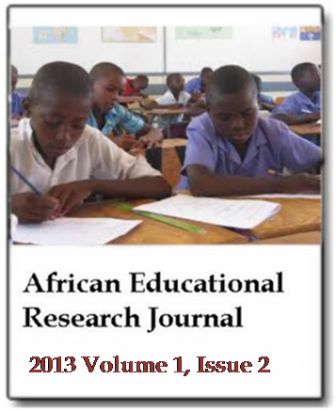Effect of team teaching and being the teacher native or non-native on EFL students' English language proficiency
Abdallah BaniabdelrahmanAfrican Educational Research Journal
Published: July 22 2013
Volume 1, Issue 2
Pages 85-95
Abstract
This study attempted to investigate the effect of the use of co-teaching, being the teacher native or non-native, and the students' language proficiency level on first year university students' achievement in English. The sample of the study consisted of twelve male students' classroom sections, four sections of level one, four sections of level three and four sections of level six. The same number of sections was chosen from the female students classes in the second semester of the academic year 2012/2013. Then, one male and one female sections of each level were taught by two native teachers; two were taught by non-native teachers, two sections were taught by one native and one non-native teachers, and two sections were taught by single teachers. An English language proficiency test, which its validity and reliability were established, was used twice as a pre and post test. The results of the study did not reveal significant differences between the male and female students' mean scores except in level one. They also revealed that co-teaching, in general, resulted in achieving higher improvement in the students mean scores in comparisons with the students who were taught by a single teacher regardless of the students' gender and level of English language proficiency. They also revealed that a combination between a native and a non-native teacher resulted in better achievement in the students mean scores in comparisons with the students who were taught by a single teacher, two native teachers, or by two non-native teachers.
Keywords: Co-teaching, native and non-native teachers, English language teaching.
Full Text PDF
